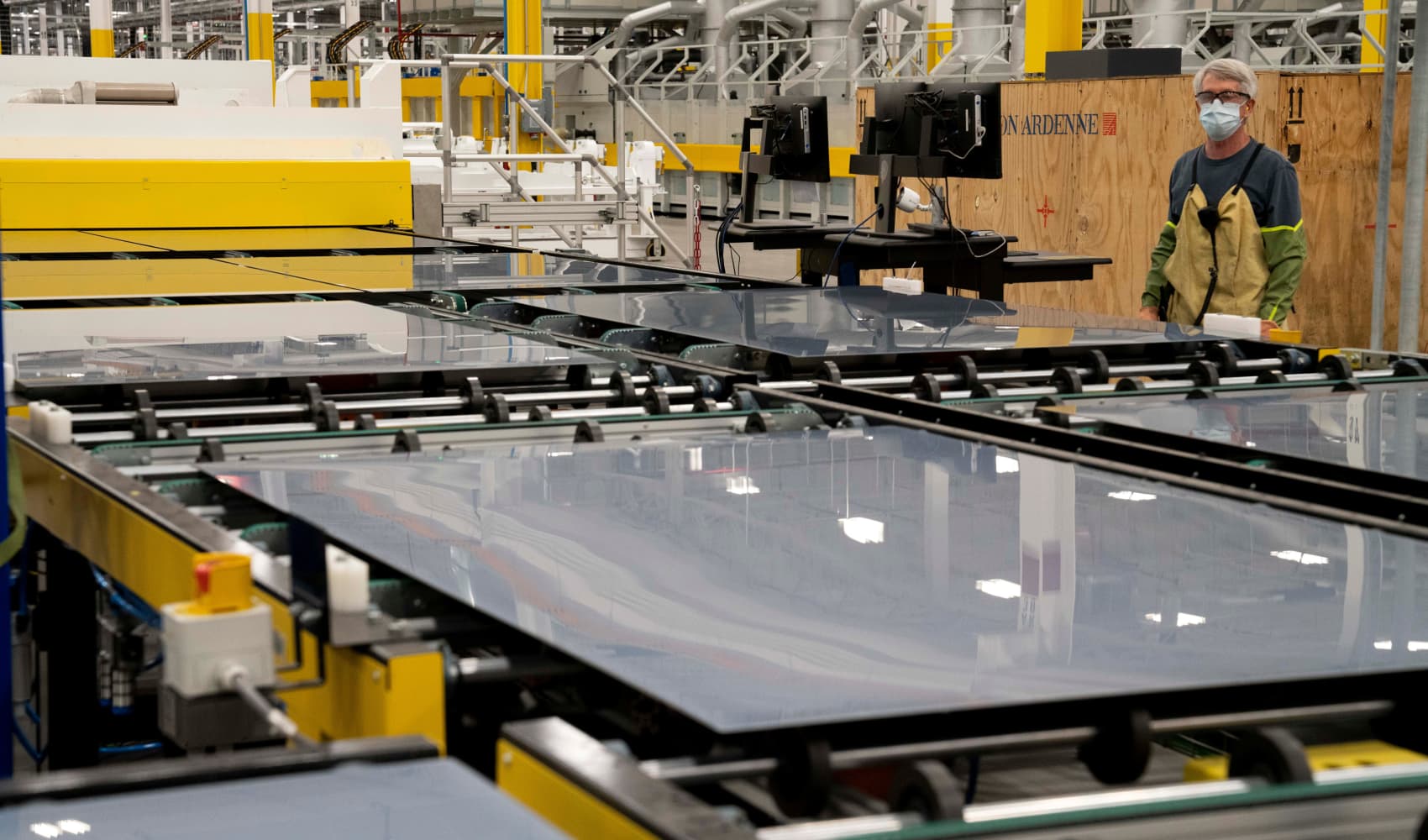
- French President Emmanuel Macron broke his silence on the political earthquake that took place in France last weekend.
- Macron called on mainstream parties to work together to form a coalition government with a "solid" majority.
- France's left-wing alliance, the New Popular Front, won the most votes in the second round of voting last Sunday, but did not gain enough seats for a majority in the National Assembly.

French President Emmanuel Macron broke his silence on the political earthquake that took place in France last weekend, calling on mainstream parties to work together to form a coalition government.
In an open letter to regional newspapers on Wednesday, Macron said "no one won" the parliamentary election and called on mainstream parties with "republican values" to form a governing alliance.
"Let us place our hopes in the ability of our political leaders to demonstrate a sense of harmony and conciliation in your interest, and in the interest of the country," he wrote, according to a CNBC translation.
"It is in light of these principles that I will decide on the appointment of the prime minister."
329 medal events. 32 sports. Endless drama. Catch all the action at the Paris Olympics. Sign up for our free Olympics Headlines newsletter.
France's left-wing alliance, the New Popular Front (NFP) clinched the most seats in the second round of voting last Sunday, beating the far-right National Rally which had won the first round.
Money Report
With just 180 seats, the NFP fell short of achieving an absolute majority of 289 in the 577-seat National Assembly, France's lower house of parliament. Macron's centrist 'Together' bloc came second in the ballot with 163 seats, and RN and its allies won 143 seats.
France's hung-parliament scenario is not familiar territory, and parties on the left, center and right are now jockeying to form alliances and a viable coalition government.
That's not an easy task when the political blocs that fought the snap election are made up of a range of parties with a variety of ideological positions — for instance, the NFP includes the more radical anti-capitalist France Unbowed and French Communist Party to the more moderate and center-left Socialist Party and the Greens.
Jean-Luc Mélenchon — the leader of the largest party in the NFP, France Unbowed — earlier this week called on Macron to allow the bloc to form a government, and said that the French president should accept its pick for prime minister. The NFP has not yet agreed on a potential candidate for the post.
French presidents traditionally select a prime minister from the party that wins the most votes in a parliamentary election, but they are not obliged to do so. They can reject the nomination of a party, if it's not seen to have enough seats to form a stable government.
In his letter, Macron signaled a wish for parties with "republican values" — code for more centrist parties, rather than far-left or far-right factions — to lead a government.
What's the likely next step?
Analysts say a minority center-right government is the new base-case scenario for France, following Macron's smoke signals.
"The most likely solution — but perhaps short-lived — now appears to be a minority coalition between Macron's much-reduced center and the ex-Gaullist center-right," Eurasia Group's Mujtaba Rahman and Anna-Carina Hamker, said in a note Wednesday.
They gave a 55% probability of success to such a centrist minority coalition — made up of Macron's Ensemble ("Together") bloc and the center-right Les Republicains (LR, with 66 seats) plus up to six centrist independents.
Tallying around 235 seats between its constituents, such a potential minority alliance would, the analysts noted, come "far short of a majority but not far short of the 250 seats with which Macron governments survived uneasily for two years after the 2022 presidential and parliamentary elections."
"It is evident that Macron has no intention of appointing a minority government of the left. His intention seems to be to play for time and hope that French politicians will be obliged eventually to 'go Belgian or Dutch' and accept that splintered parliaments demand compromises and coalitions," Rahman and Hamker added.
Antonio Barroso, deputy director of research at the consultancy Teneo, said that the prospect of a centrist-led minority government was not a "very realistic" possibility at this stage.
"Together is extremely divided, and the MPs [lawmakers] from the more progressive wing of the alliance are opposed to forming a government with LR. Moreover, many LR MPs are reluctant to cut a deal with Together," he said in a note Wednesday.
He added that a Together-LR coalition government could also be easily dismissed by a no-confidence motion supported by France Unbowed and National Rally.
As the chance of getting one of the left's candidates into the prime minister's office appeared to recede on Wednesday, Macron's opponents were scathing about the president's comments.
France Unbowed's Mélenchon described the letter as akin to a "presidential coup," stating on X that "the people's vote must be respected."
National Rally's 28-year-old leader Jordan Bardella meanwhile criticized Macron for creating the political mess that France now finds itself in.
Blaming Macron for the political "paralysis" France is experiencing, Bardella commented in a CNBC-translated X update that the French president's "message is as of now: 'sort something out'. Irresponsible!"
— CNBC's Ruxandra Iordache contributed reporting to this story.






